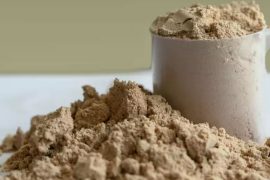Seven nutrient deficiencies that can hinder metabolism, leading to decreased energy production and a sluggish metabolic rate. These include deficiencies in Vitamin D, Vitamin B12, and selenium, all of which are vital for optimal metabolic function. Additionally, vitamins B-complex, iron, and iodine play crucial roles in supporting metabolism. Ensuring adequate intake of these nutrients from sources such as fortified foods, supplements, and natural sources like fish, dairy, eggs, leafy greens, lean meats, and nuts is essential for maintaining a healthy metabolism and overall well-being.
1. Vitamin B12:
Vitamin B12 is vital for metabolizing carbohydrates, fats, and proteins effectively. Fermented foods such as dosa, kefir, and curd are excellent sources of Vitamin B12. Symptoms of deficiency can include weakened muscles, difficulty walking, nausea, weight loss, and irritability. Ensuring an adequate intake of Vitamin B12 through dietary sources or supplements is essential for supporting metabolic processes and overall health.
2. Vitamin D:
Vitamin D plays a crucial role in enhancing glucose uptake by cells and optimizing metabolism. Ensuring sufficient exposure to sunlight for 10-15 minutes daily can help prevent deficiency. Additionally, sources rich in Vitamin D include fish liver oils, fatty fish flesh, egg yolks, and cheese. Symptoms of Vitamin D deficiency may manifest as fatigue, sleep disturbances, bone pain, hair loss, and muscle weakness. Regular intake of Vitamin D-rich foods and appropriate sun exposure can help maintain metabolic health and overall well-being.
3. Zinc:
Zinc plays a crucial role in various metabolic processes, including protein synthesis and enzyme activity. Foods such as pumpkin seeds, chickpeas, and cashews are excellent sources of zinc. Symptoms of zinc deficiency may include hair loss, changes in skin and hair texture, eye problems, loss of taste and smell, and diarrhea. Ensuring sufficient intake of zinc-rich foods is essential for supporting metabolic functions and overall health.
4. Copper:
Copper is essential for energy metabolism and iron absorption within the body. Consuming water stored in copper vessels, as well as foods like sunflower seeds, lentils, and hemp seeds, can help maintain adequate copper levels. Signs of copper deficiency may manifest as anemia, low body temperature, bone fractures, low white blood cell count, irregular heartbeat, loss of skin pigment, and thyroid issues. Incorporating copper-rich foods into your diet can support metabolic processes and overall health, helping to prevent deficiency-related symptoms.
5. Iron:
Iron is essential for enhancing metabolic activity and combating fatigue. Foods such as dates, pomegranates, munakka (raisins), and green leafy vegetables like methi (fenugreek) and amaranth are rich sources of iron. Symptoms of iron deficiency may include yellowish skin, unexplained fatigue, shortness of breath, rapid heartbeat, and headaches. Ensuring adequate intake of iron-rich foods can help prevent deficiency-related symptoms and support optimal metabolic function, promoting overall well-being.
6.Selenium:
Selenium is a crucial nutrient that enhances thyroid function and supports metabolism. Good dietary sources of selenium include Brazil nuts, hazelnuts, and sunflower seeds. Symptoms of selenium deficiency may include impaired immune function, cardiovascular effects, reproductive and fertility issues, thyroid dysfunction, neurological symptoms, and musculoskeletal abnormalities. Incorporating selenium-rich foods into your diet can help maintain proper thyroid function and support metabolic health.
7. Protein:
Protein plays a vital role in synthesizing enzymes and hormones crucial for metabolism. Sources like lentils, paneer (cottage cheese), milk, and legumes provide ample protein. Signs of protein deficiency may include fatty liver, skin and hair issues, loss of muscle mass, mood changes, weakness, and fatigue. Ensuring sufficient intake of protein-rich foods is essential for supporting metabolic processes, maintaining muscle mass, and overall health.
Disclaimer:
The information contained in this article is for educational and informational purposes only and is not intended as a health advice. We would ask you to consult a qualified professional or medical expert to gain additional knowledge before you choose to consume any product or perform any exercise.








